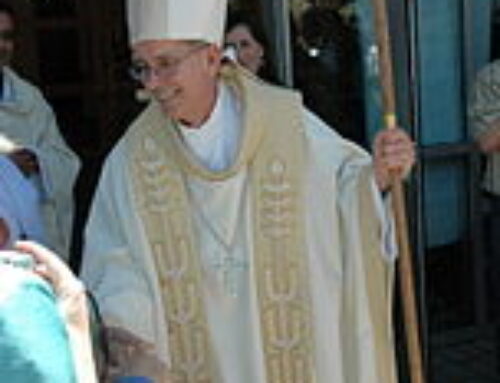 The phrase “the Communion of Saints” is very familiar to Catholics, especially older ones, because it is in the Apostles’ Creed that they were taught in childhood. The term is based on the belief that a union exists between the deceased who loved God while on earth and the living who do so now.
The phrase “the Communion of Saints” is very familiar to Catholics, especially older ones, because it is in the Apostles’ Creed that they were taught in childhood. The term is based on the belief that a union exists between the deceased who loved God while on earth and the living who do so now.
The Church has encouraged us to pray for those who have died and are presumed to be in Purgatory: “All who die in God’s grace and friendship, but still imperfectly purified, are indeed assured of their eternal salvation; but after death they undergo purification, so as to achieve the holiness necessary to enter the joy of heaven.” (Catechism: 1030-32)
However, the Church has not yet taken a formal position on whether those in Purgatory can pray for us, and over the centuries Catholic scholars have disagreed on the matter. For example, Thomas Aquinas believed they cannot. Robert Bellarmine and Francisco Suarez believed they can. Suarez wrote “that the souls in purgatory are holy, are dear to God, love us with a true love and are mindful of our wants; that they know in a general way our necessities and our dangers, and how great is our need of divine help and divine grace.”
Suarez’s thought is consoling for two reasons. One is its suggestion that God permits the souls in purgatory to mirror His Divine Mercy by joining in the loving intercessions of the saints on behalf of the living. That would be a great blessing to them as they await union with Him. The other reason is its implication that our relationship with those we once knew can continue in a more profound way than we might imagine. This implication deepens the meaning of our prayers.
How many times have we been too proud or too self-involved or simply too busy to express to others the positive emotions we felt—love, affection, respect and admiration for those we cared for; gratitude toward those who blessed our lives in some way; forgiveness to those who hurt us; sorrow for our having hurt others—until they were gone and it was too late. Regret for those missed opportunities to show loving kindness can remain a burden for decades.
Suarez’s thought encourages us to frame our prayers for the souls in Purgatory in a way that not only helps them and pleases God (always the most important intentions) but also brings greater healing to us. That way is to mention in our prayers the feelings we wish we had expressed to the individuals when they were with us. Here are two examples of prayers framed in this way.
Heavenly Father, I pray for the soul of my aunt Louise Bauer, to whom I never expressed gratitude for her many acts of love when I was young. As I have grown older, I have come to appreciate her goodness more than ever. May she rest in your embrace for all eternity.
Heavenly Father, I pray for the soul of my college professor, Frank Renzi, who a year after my graduation encouraged me to go to graduate school. If he were here today, I would thank him for his generous and wise counsel and for the successful career it made possible for me. May he rest in Your heavenly peace.
I know that the deceased have no need of our expressing now the sentiments we failed to express when they were alive. I also understand that God already knows both the virtues of the deceased and the remorse we feel for having missed our opportunities to be virtuous. Even so, I choose to believe that speaking those sentiments, especially in the form of prayer, will by God’s mercy bring comfort to the deceased and consolation to those who speak them.
Copyright © 2020 by Vincent Ryan Ruggiero. All rights reserved


